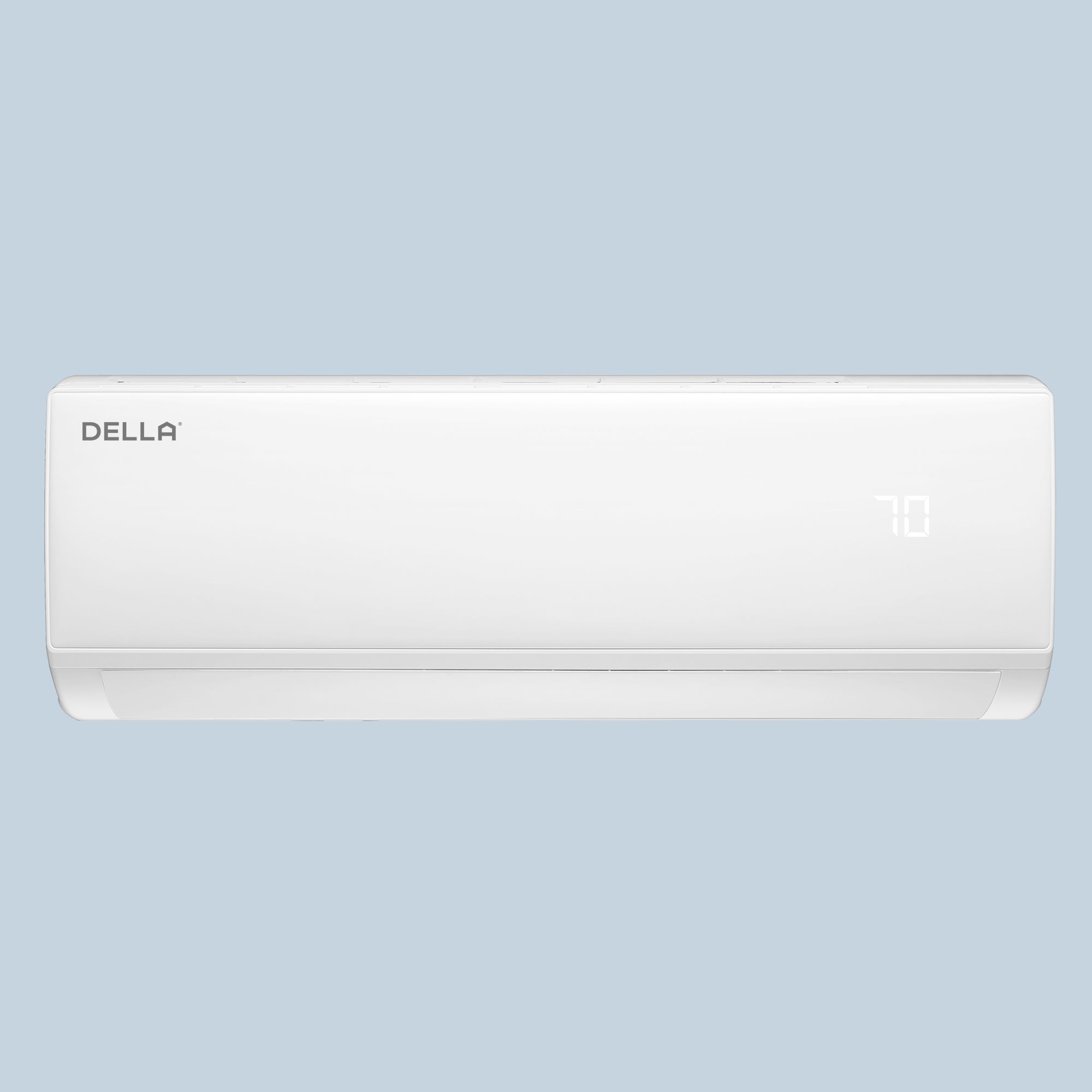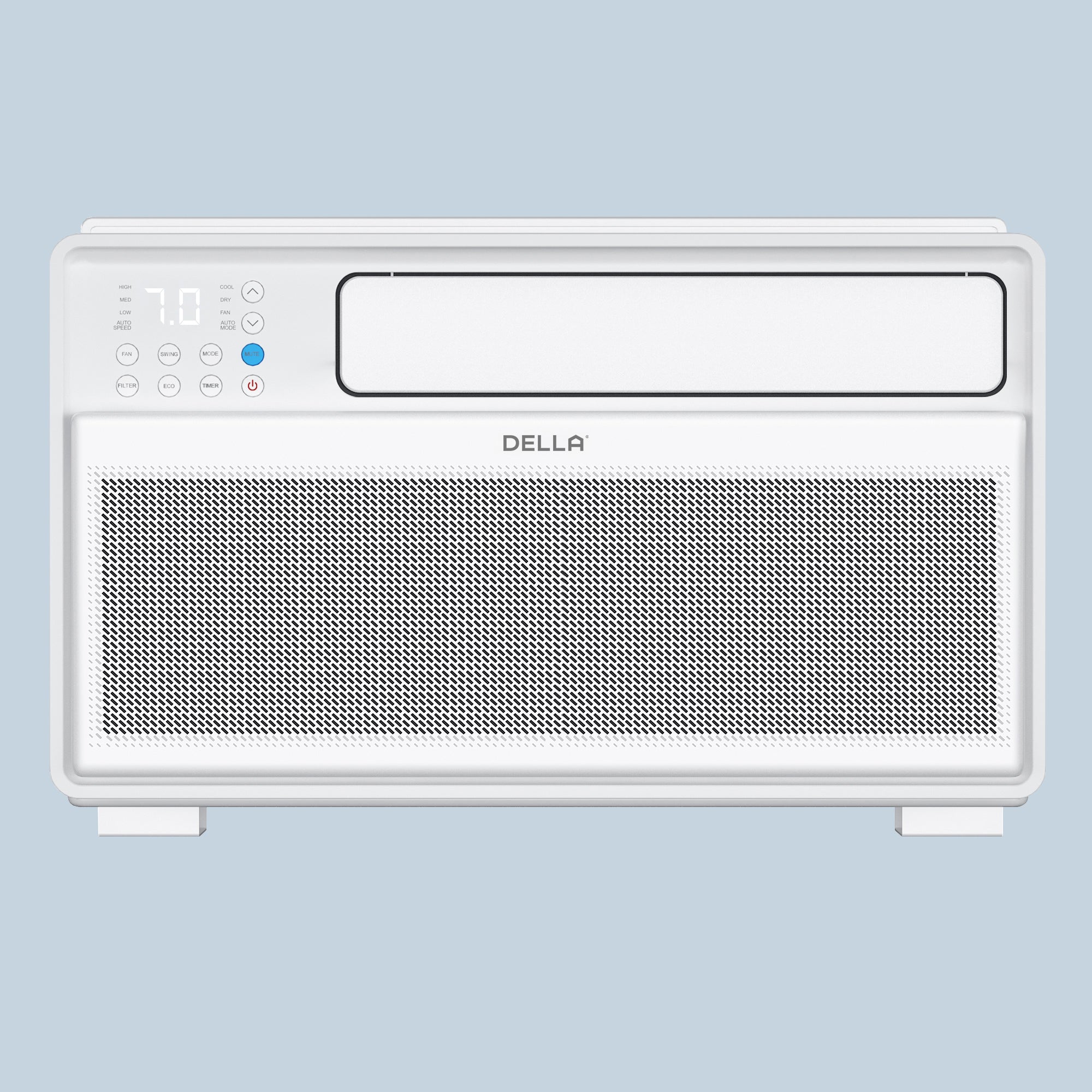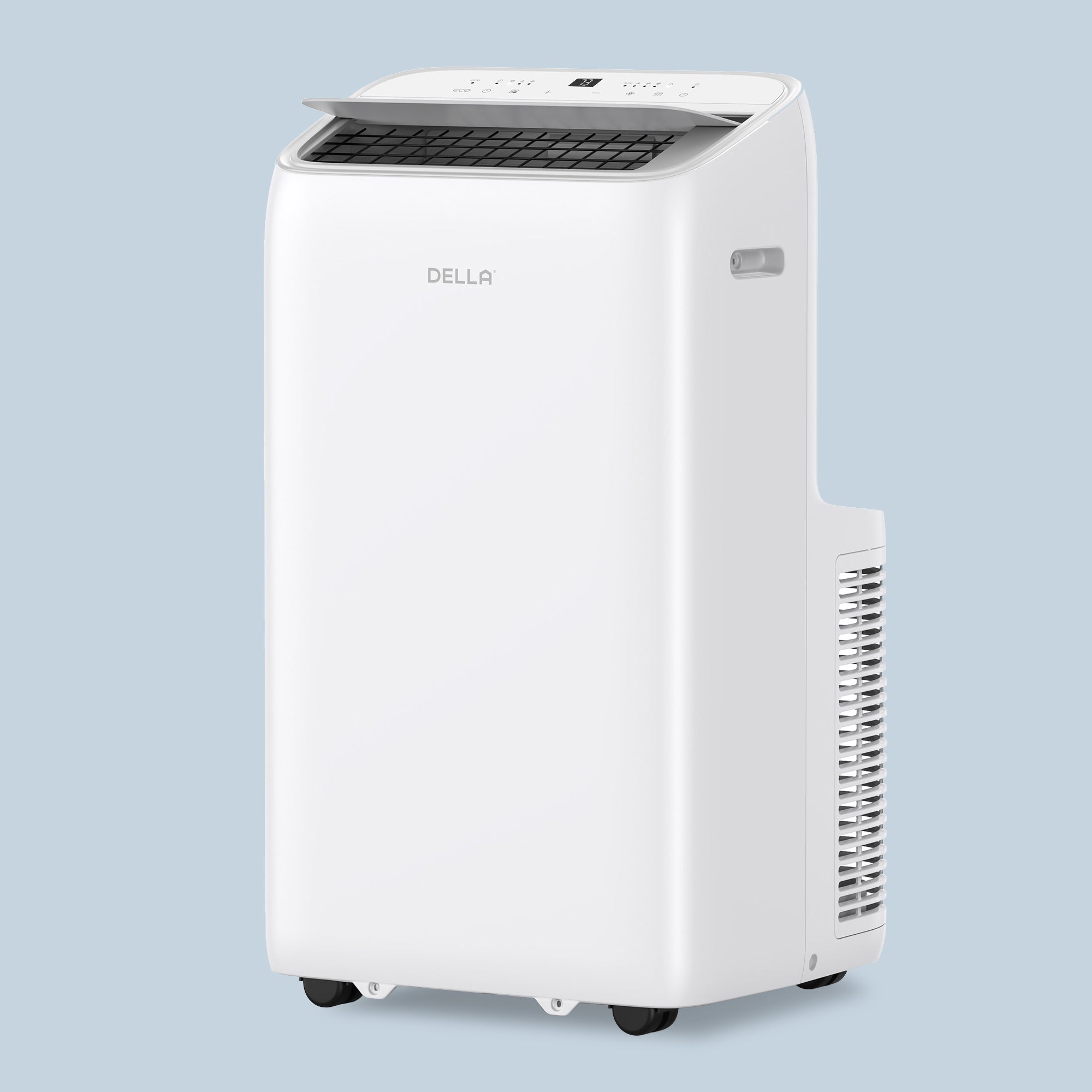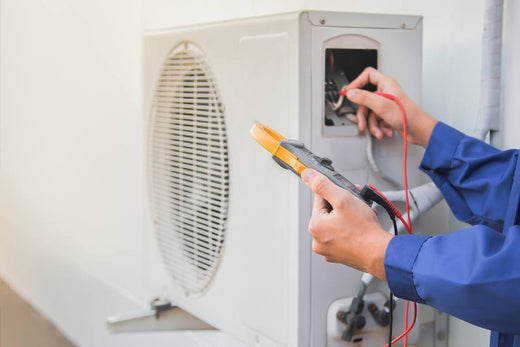As 2025 begins, many people are concerned about getting their air conditioners (AC) ready for the upcoming warmer months. Among various maintenance tasks, ensuring the refrigerant level is sufficient—known as AC recharging—is a key focus. Let's learn the basics now and can help you stay ahead of potential issues, saving money and keeping your AC running smoothly when summer arrives.
Understanding AC Reacharge
What Is AC Recharge?
AC recharge is the process of adding Freon to an air conditioning system to restore its cooling efficiency.
Refrigerant is the fluid that absorbs heat from inside your home and releases it outside, allowing the AC to keep your space cool.
Why Do You Need AC Recharge?
With the start of a new year, being unused for months, your AC may not perform as well as expected. Low refrigerant levels are a common issue after long periods of inactivity.
When refrigerant levels are low, your AC won’t cool your home properly, making it harder to stay comfortable and increasing your energy bills. Over time, this extra workload can cause serious damage or costly breakdowns.

Common Reasons for Needing a Recharge
Leaks
Leaks in the system are the main reason for losing refrigerant. Over time, the connections and seals in an AC unit can deteriorate, leading to slow leaks.
Old Units
Older AC systems tend to lose refrigerant over time. As parts age, they become less effective at maintaining a sealed system.
Bad Installation
If the AC wasn’t installed properly, it might lose refrigerant faster. Poorly connected lines or improperly sealed joints can cause refrigerants to escape.
Environmental Damage
Harsh weather conditions and external factors can damage the refrigerant lines, leading to leaks.
Seasonal Changes
After long periods of non-use, such as winter, the refrigerant system may require a recharge due to decreased pressure or minor leakage.
Wear and Tear Over Time
Even without visible leaks, natural wear can cause a gradual loss of refrigerant efficiency over the years.
How Much Does It Cost to Recharge an AC in 2025?
Based on different types of AC systems, the cost varies. Here’s an approximate range of what you might expect to pay:
-
Mini-Split Systems: $120–$310
-
Window AC Units: $110–$210
-
Portable AC Units: $100–$200
-
Central AC Systems: $160–$580

What Affects AC Recharge Costs?
Several things can affect how much you’ll pay for an AC recharge:
Type and Size of the AC Unit
Bigger systems need more refrigerant, so they cost more to recharge. For example, central AC systems usually need more refrigerants than smaller window units.
| AC Size (BTU) | Recharge Cost | Refrigerant Amount |
| 5,000 – 6,000 BTU | $100–$180 | 1–1.5 pounds |
| 8,000 – 9,000 BTU | $120–$220 | 1.5–2 pounds |
| 12,000 BTU | $130–$250 | 2–3 pounds |
| 18,000 BTU | $160–$280 | 3–4 pounds |
| 24,000 BTU | $180–$350 | 4–6 pounds |
| 36,000 BTU | $200–$400 | 6–8 pounds |
| 48,000 BTU | $220–$450 | 8–10 pounds |
Type of Refrigerant
There are several types of refrigerants commonly used in air conditioning systems.
Freon (often used as a general term for refrigerants) is a common one, though newer alternatives like R-410A are replacing older types like R-22.
Here are some of the most commonly used refrigerants and their approximate costs per pound:
-
R-410A: $40–$75
-
R-22: $150–$250
-
R-32: $60–$100
-
R-134A: $20–$45
-
R-407C: $50–$85
R-22 is being phased out and can be significantly more expensive due to limited availability. You might consider using more environmentally friendly Freon options like R-410A and R-32 to cater to 2025 new refrigerants rule.
Labor Costs
The average labor cost for HVAC technicians ranges from $100 to $250 per hour. For a straightforward AC recharge, the process typically takes about 1–2 hours. In some cases, locating and repairing a leak can take an additional 1–3 hours. As a result, you could pay anywhere from $300 to $750 for the total labor cost.
Location
In areas with high demand for AC services—such as major cities or regions with hot climates—the price for recharging can be as much as 20% to 30% higher than in rural areas. Additionally, regions with stricter environmental regulations or limited refrigerant supply can drive up prices, especially for older refrigerants like R-22.
Should You Do It Yourself or Hire a Pro?
Recharging your air conditioner may seem like a DIY task, but it’s best left to a professional. Here’s why:
Legal Restrictions
To handle and buy refrigerants legally, you need an EPA Section 608 certification. Without this, you can face fines for improper refrigerant handling.
Improper Refrigerant Use
Using the wrong refrigerant or improper techniques can damage your AC, reduce efficiency, and cause leaks, leading to costly repairs.
Detecting Leaks
Refrigerant loss is often due to hidden leaks, which a professional can detect with specialized tools. DIY fixes won't address the root cause.
Safety
Refrigerants are pressurized substances. Mishandling them can result in injury or environmental harm. HVAC technicians are trained to handle them safely.
Voiding Warranties
DIY repairs can void your manufacturer warranty, leaving you unprotected if something goes wrong.
Cost of Mistakes
Improper recharging or failure to fix leaks can damage your AC, leading to expensive repairs down the line.
Though we advise you hire a professional to recharge your AC, If you need DIY recharging refrigerant, Della offers DIY installation kit rental, which includes vacuum and charging tools for you!
How Often Should You Recharge Your AC?
Most AC units don’t need regular recharging. If your system is in good shape, it might only need a recharge every 2 to 5 years or even longer.
How to Tell If Your AC Needs a Recharge?
If your air conditioner is losing efficiency, it may need a refrigerant recharge. Here are common signs to watch for:
Reduced Cooling Performance
If your AC isn’t cooling as well as it used to, or if it’s struggling to reach the desired temperature, it could be low on refrigerant.
Constantly Running Compressor Not Cool
If the compressor is running constantly without cooling the room effectively, it may indicate that the refrigerant is insufficient to cycle the system properly.
Ice Buildup
Frost or ice on the refrigerant lines or the evaporator coil is a sign of low refrigerant. It prevents the AC from absorbing and releasing heat properly.
Hissing or Bubbling Noises
Hissing or bubbling sounds near your AC unit might indicate a refrigerant leak, which will require a recharge once the leak is repaired.
How to Save Money on AC Recharges?
To avoid high recharge costs, follow these key steps:
Stay on Top of Regular Maintenance
Have your unit serviced annually, including cleaning the coils and checking refrigerant levels preventing common issues like leaks and dirty coils, which reduce efficiency and require more frequent recharges.
Schedule Yearly Inspections
Get your AC checked before peak cooling season. An early inspection helps catch issues early—before they turn into expensive repairs or recharges.
Ensure Proper Installation
When installing a new system, hire a certified professional to ensure it’s done right from the start.
Correct installation is crucial to long-term efficiency. Poor installation can cause refrigerant leaks and reduce overall system performance.
Seal Leaky Ductwork
Properly sealing ducts can improve airflow and efficiency, preventing refrigerant loss. Leaky ducts waste energy and force your AC to work harder, leading to higher utility bills and more frequent recharges.
Conclusion
As the summer 2025 is coming, check and keep your air conditioner refrigerant level in top shape to ensure it performs efficiently.
If you’re looking for an energy-efficient and easy-to-maintain pre-charged AC system, Della offers a range of options in air conditioner sale. Whether it’s a mini split AC, window AC, or portable AC, Della’s units are designed to provide high performance with minimal upkeep. Their systems are straightforward to install, helping you stay cool without the hassle. Visit Della today and keep your home comfortable all year round.
FAQs
Why Is R-22 Refrigerant So Expensive?
R-22 is being phased out because it harms the environment. Since it’s no longer being made, it’s harder to find and more expensive.
How Can I Avoid Needing Frequent Recharges?
You can avoid frequent recharges by keeping up with regular maintenance, getting inspections on time, and making sure your AC unit is installed correctly. Preventing leaks is the best way to reduce the need for recharging.
What Happens If You Overcharge Your AC?
Overcharging your AC with Freon can lead to several problems:
Reduced Cooling Efficiency
An overcharged system can cause the refrigerant to flow too quickly, preventing the AC from properly absorbing and releasing heat. This reduces the system’s cooling efficiency.
Increased Pressure on Components
Excess refrigerant puts additional pressure on the compressor and other internal components of the AC. Over time, this strain can cause parts to wear out faster.
Higher Energy Bills
With too much refrigerant, your AC will consume more energy than necessary in an attempt to cool your space. This results in higher electricity bills.
Potential for Refrigerant Leaks
Overcharging can cause the refrigerant to expand beyond its normal operating range. This can lead to leaks or damage to the refrigerant lines.
Read More:
What is Air Conditioner Refrigerant? Types, Benefits & Risks
How Long Do Air Conditioners Last? Find Out Here!
Air Conditioning Replacement vs. Repair: Which is Right for You?









LEAVE A COMMENT
All comments are moderated before being published.
This site is protected by hCaptcha and the hCaptcha Privacy Policy and Terms of Service apply.